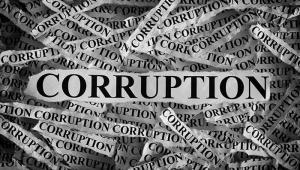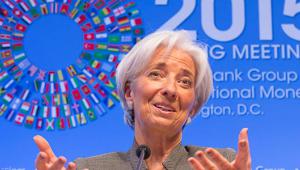The study, by Oxfam and Catholic charities CCFD-Terre Solidaire and Secours Catholique-Caritas analysed publicly available country-by-country reporting data. They found that BNP Paribas, BPCE, Société Générale, Crédit Agricole and Crédit Mutuel - CIC declare a third of their international profits in tax havens, even though these represent only a quarter of their international turnover.
The five banks investigated disclosed having 16 subsidiaries in the Cayman Islands between them, none with any staff, from which they declare €45m in profits. The banks’ subsidiaries in offshore territories had no staff at all in a total of 35 cases.
Manon Aubry, advocacy adviser at Oxfam France, said the sheer volume of money that the banks are routing through tax havens to maximise their profits is “shocking”.
“We are sure that banks and big businesses in other European countries will be doing the same,” she added.
The report concluded that the banks are heavily reliant on these methods to increase their profits. It found they make almost €5bn, or a third of their international profits, in tax havens.
These businesses represent only a quarter of their international turnover (€13.54bn of €53.05bn), a fifth of their taxes paid (€825m compared with €4.04bn) and a sixth of their staff (42,968 out of 263,893). Employees working in tax havens appeared 2.6 times more productive than bank staff elsewhere.
Declaring profits in tax havens enables the banks to pay around half the effective rate of tax compared to the rates they are subject to in other countries. In 19 cases, the banks paid no tax at all in the tax havens.
The report said these subsidiaries are on average 60% more lucrative for the banks than those in other countries. For every €1,000 in turnover from Société Générale, for example, the bank declares profits of €557 in tax havens – compared to just €144 declared in other countries, and just €34 in France itself.
The analysis also revealed that the banks’ most risky and speculative activities, such as portfolio management or derivative-based finance instruments, are almost always located in tax havens.
Oxfam credited the availability of public country-by-country reports, which only banks are currently required to provide under current legislation, for enabling the analysis.
The European Union law requiring banks to disclose information on their activities and taxes paid in each country in which they operate is two years old, and France was the first country to translate this into national law.
Aubry said that although reporting is not yet perfect, it is “clearly a first step to fight tax dodging”.
Lucie Watrnet, advocacy advisor at CCFD-Terre Solidaire, another NGO that worked on the report, called for this requirement to be extended to apply to all multinationals.
“Public services in both Europe and developing countries are lacking vital resources such as health care and education, while ordinary citizens carry a heavier tax burden. It is time for decisive EU action to stop this shameless trickery,” she said.
Aurore Chardonnnet, EU policy advisor at Oxfam, added “all eyes are now on the European Commission”, which is currently considering extending public country-by-country reporting to all sectors, with a proposal to be announced in April.
She called on the commission to deliver an “ambitious proposal that pioneers real tax transparency”.
This would mean clear rules for companies that ensure a full picture of their international business and not restricting these reports to companies’ subsidiaries in the EU, she explained.
A spokesman for BNP Paribas denied the bank had been purposely avoiding taxes. “BNP Paribas’ choice of where to set up offices is based on economic logic, not tax related goals,” he said, adding that the fact the group paid tax at a rate of 30.9% in 2015 “clearly demonstrates this”.
He noted that BNP Paribas is one of the major taxpayers in France, paying €2.6bn in taxes and other fiscal contributions last year, and that the bank does not have any permanent establishment in the countries identified by the OECD as tax havens.
A spokesman for Société Générale said that the report uses an outdated list of tax havens that is not recognised by fiscal authorities or international organisations like the OECD and does not take into account the work done towards reforming the international corporate tax system, which favours the automatic exchange of information and tax transparency. A number of countries mentioned are well-recognised financial centres or whole financial importance that justifies the presence of the bank, he added.
He continued to say that Société Générale voluntarily goes beyond what is required of the bank by law when it comes to reporting on and conducting its activities.













